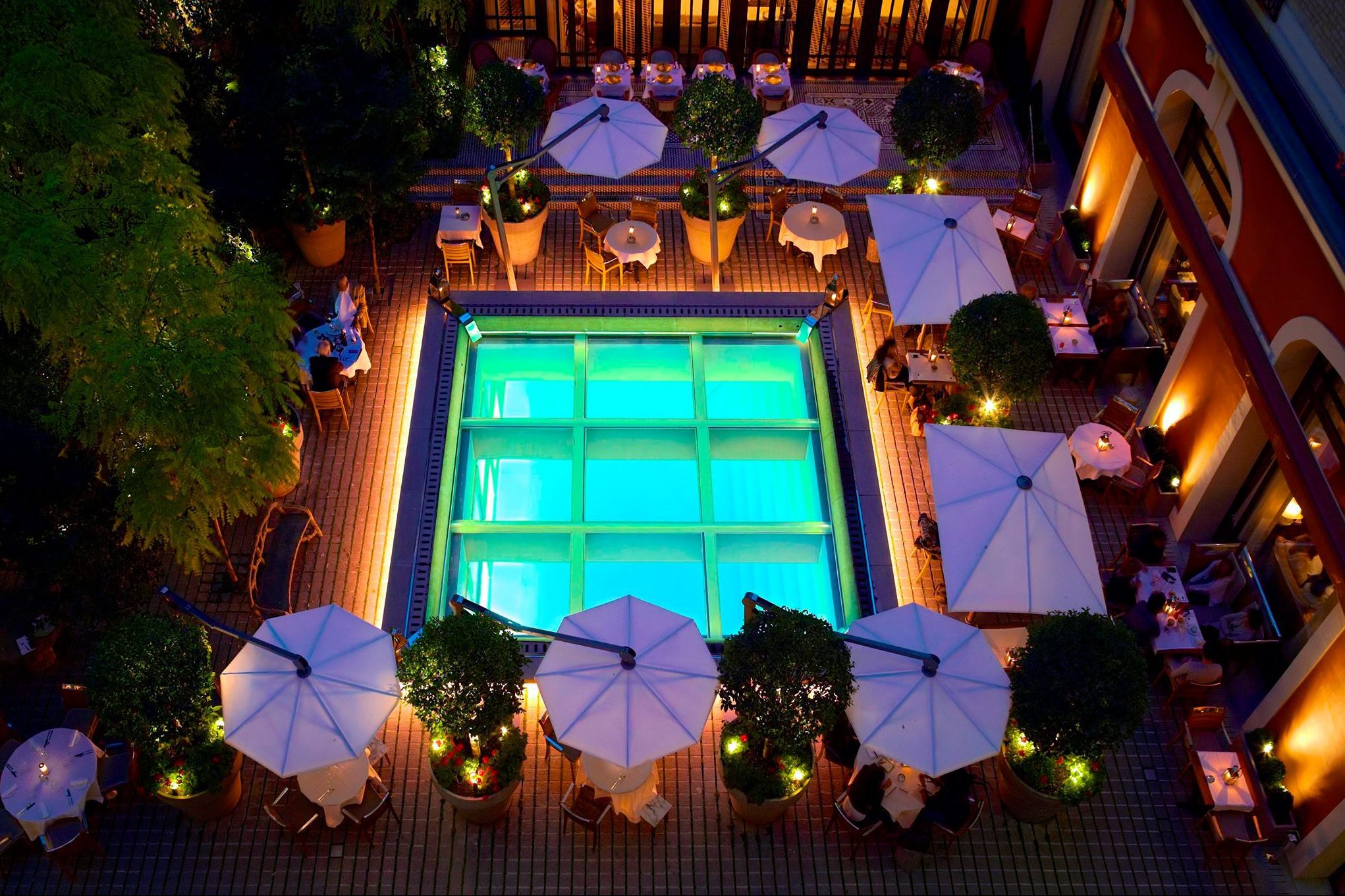Skift Take
Trends in travel are never mutually exclusive. We take a look at a new report out of Switzerland to examine how the biggest trends in hospitality overlap and how they impact the luxury sector.
Whether you are looking to examine trends in luxury or in hospitality — or both — a good place to start is Switzerland. A great deal of what happens in luxury travel percolates here, as the country’s hospitality schools regularly turn out the next generation of high-end hoteliers.
That’s why it’s instructive to ask professionals associated with these schools about their views on what’s really going on.
“The future of hospitality is increasingly transversal, shaping and being shaped by global movements, industries and consumer values. Emerging trends in sustainability, luxury, technology and innovation are all influencing the future direction of the hospitality industry,” said Benoît-Etienne Domenget, CEO of Sommet Education, (parent of Glion Institute of Higher Education and Les Roches Global Hospitality Education.)
A new Sommet Education white paper covering hospitality in 2019 explores those four areas are intertwined.
At Glion, Dr. Christine Demen Meier, clinical professor in Entrepreneurship Education and Marie-France Derderian, director of the MSc in Hospitality, Entrepreneurship and Innovation, suggest innovation can entail “time-saving technology for business travelers, human personalization and bespoke service for luxury guests, or (the development of) social experiences and new concepts for an upcoming generation.”
Technology, of course, is the most obvious elephant in the hotel room.
“Technology is transforming the way customers interact with brands. Chatbots, robots and other forms of artificial intelligence provide users with information on demand and personalized recommendations. Facial recognition technology is opening doors [sometimes literally] to time-saving service, while smart hotel rooms equipped with internet-of-things (IoT) connectivity allow guests to customize their experience with an app or their own voice,” said Domenget.
From the trenches, Marriott’s Tina Edmundson, global brand officer at Marriott International, concurs. Quoted in a Bloomberg article, she said,”Technology is top of mind for everyone right now….specifically investment in the so-called Internet of Things.”
Les Roches associate professors Dr. Alain Imboden and Riccardo Campione point out that Marriott is partnering with Legrand and Samsung’s ARTIK cloud-based platform, while Hilton has developed its own proprietary platform, to roll out IoT offerings for their guests.
Even as technology becomes more complex, the Swiss academics remind us that in world of luxury travel, the one “trend” that remains constant is the value of humans in building customer relationships.
“Human interaction remains core to the hospitality industry. In the luxury industry, this human service is vital for brands to deliver a bespoke experience, in which guests can feel both at ease and pleasantly surprised by service that surpasses expectations,” said Demen Meier and Derderian.
“These shared moments of personal service may turn out to be the real luxury that guests most value.”
As a result luxury brands need to continue to innovate ways to deliver “these shared moments of personal service [which] may turn out to be the real luxury that guests most value.”
Sometimes, the innovation in personalization comes back to the technology. Aaron Kaupp, general manager of Le Royal Monceau-Raffles Paris points out, “Technology has played a huge part of getting personal. Our best friend is Google, We have a dedicated guest relations team that googles the clients who stay with us to learn about their preferences.”
Skift contributor Colin Nagy cites Upper House Hong Kong as an example of a luxury hotel that blends technology and human hospitality seamlessly. In an interview with General Manager Marcel Thoma, an alumnus of Switzerland’s Ecole Hôtelière de Lausanne, Nagy asked how Upper House balances digital customer relationship management and data with classic hands-on ideals of hospitality.
“I think they are equally important and complement each other, and the definition of what ‘classic’ is, may no longer apply in today’s hospitality industry. It is still vital for us to engage with our guests face to face, gather information and receive feedback,” said Thoma.
“We listen. The close communication and data behind the scenes is just as important as the way it is utilized by employees on the front line day to day. It’s about offering the highest level of personalization and having that human connection.”
Sustainability is another key trend that the Swiss academics see impacting the luxury space.
“Transparency and accountability are becoming more important as travelers want to know the impact of their footprint — not only environmentally, but socially as well,” said Dr. Dimitrios Diamantis. dean of Graduate Studies at Les Roches.
“Hotels and other hospitality businesses are increasingly taking a more mature approach that incorporates socially responsible practices as well as sound environmental and economic policies.”
With social responsibility being particularly resonant among younger travelers, they go on to say that the “pressure is on for the travel and tourism sector to walk the talk.”
Get Skift Research
Skift Research products provide deep analysis, data, and expert research on the companies and trends that are shaping the future of travel.
Have a confidential tip for Skift? Get in touch
Tags: ihg, reports, Travel Trends
Photo credit: Le Royal Monceau - Raffles Paris. The hotel's general manager said technology player a key role in better personalization. Accor
